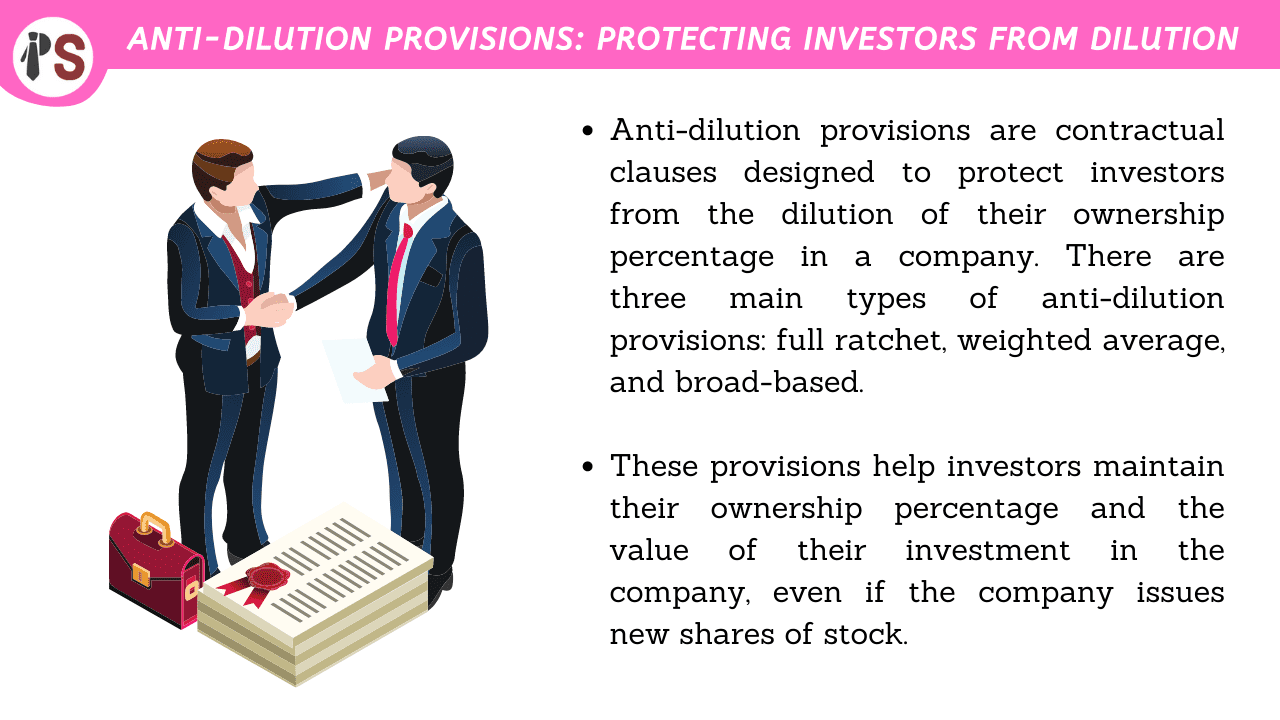
Anti-dilution provisions: Protecting Investors from Dilution
When a company issues new shares of stock, it can dilute the ownership percentage of existing shareholders. This dilution can have a negative impact on the value of existing shares and can be a concern for investors, especially those who invested early in a company's life cycle. Anti-dilution provisions are designed to protect these investors from dilution by adjusting the price per share or the number of shares they own.
What are Anti-dilution provisions?
Anti-dilution provisions are contractual clauses that protect the investors from the dilution of their ownership percentage in a company. These provisions are typically included in the stock purchase agreements (SPA) or investment contracts and can be negotiated between investors and the company before the investment is made.
Types of Anti-dilution Provisions
There are different types of anti-dilution provisions, but the most common ones are:
Full Ratchet: This provision provides the most protection for investors. In a full ratchet anti-dilution provision, the conversion price of the preferred stock is adjusted downward to the price at which new shares are issued. This means that the investor's ownership percentage is protected regardless of the price at which the new shares are issued.
Weighted Average: The weighted average anti-dilution provision is the most commonly used provision in investment contracts. It calculates the new conversion price by taking into account the price, number of shares issued, and the number of shares outstanding. This provision is less favorable to investors than the full ratchet, but it is more flexible and can be customized to suit the needs of both parties.
Broad-Based: The broad-based anti-dilution provision protects all shareholders, not just preferred shareholders. This provision is less common than the other two, but it can be beneficial for early-stage investors who have common stock. This provision ensures that their ownership percentage is protected in case of dilution.
Why are Anti-dilution Provisions important?
Anti-dilution provisions are essential for protecting the interests of investors in a company. These provisions help investors maintain their ownership percentage and the value of their investment in the company, even if the company issues new shares of stock.
Without anti-dilution provisions, investors risk having their ownership percentage reduced, and their investment can lose value. This can be particularly problematic for early-stage investors who invested in a company before it became profitable or before it was acquired by a larger company.
Conclusion
Anti-dilution provisions are a critical aspect of investment contracts that protect investors from dilution. These provisions provide investors with the assurance that their ownership percentage and investment value will be protected, even if the company issues new shares of stock. Investors should carefully consider the type of anti-dilution provision that is included in their investment contract and negotiate the most favorable terms possible to protect their investment.
At Professional Saathi, we offer a range of business consultancy services that help businesses improve their performance, achieve growth, and overcome challenges.
Copyright 2026 © Created By KTPG PROFESSIONAL SAATHI CORPORATE CONSULTANT PRIVATE LIMITED, All Rights Reserved.
Leave Your Comment